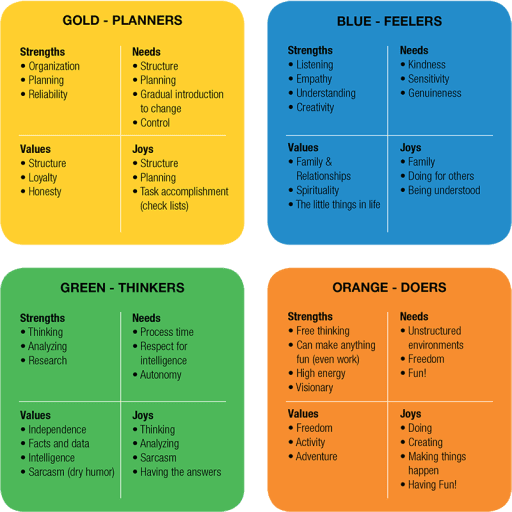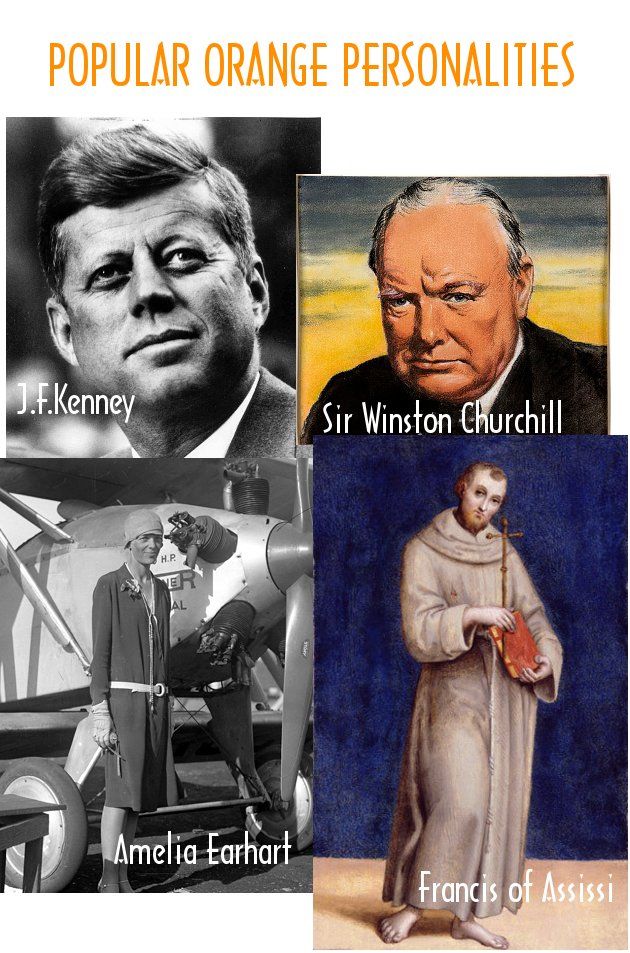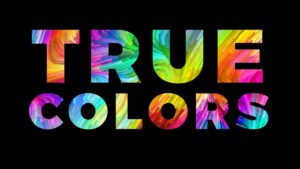What is the Orange True Colors Personality Type?
The Orange True Colors Personality Type is known as the Impulse-Oriented Personality Style.

- They are natural trouble-shooters, performers, and competitors.
- Oranges value skill, resourcefulness, and courage.
- They consider life a game and like to live here and now.
- They need fun, variety, stimulation, and excitement.
- They are witty, charming, and generous.
- They are optimistic, eager, and impulsive.
If the thought of traditional life makes you uncomfortable, you may be a primary orange.
Your independent nature could mean you desire freedom and flexibility in all aspects of your life, including your career.
You might find strict rules or deadlines suffocating. Although you could enjoy a challenge, you may also crave recognition and fast results.
Your energy, adaptability, and multi-tasking abilities may be strengths in the workplace. Consider a job that allows you to take charge of your schedule, such as freelance or remote work or work that will enable you to travel the world often.
If sticking to a routine is challenging, you might feel that adding incentives or changing your routine occasionally could make you feel more comfortable. You may take the same approach with romantic relationships.
Because oranges are often comfortable taking significant risks for significant rewards, others may believe they are impulsive or irresponsible or that “consequences are coming.”
Additionally, oranges might find themselves experiencing emotions quickly while also being quick to come back down from an emotional response. Their friends may see them as fun, humorous and optimistic.
Orange Personality Type cross-reference
- Keirsey Type – Artisan
- Temperament Type – Sanguine
- Animal Type – Golden Retriever
- DISC Type – Steadiness
- Socio-Communicative Type – Amiable
- Color Code – Yellow
- Personality Compass – South
- Occupational Type – Conventional
MBTI Personality Types (xSxP) – Sensing and Perceiving
Enneagram Types
- Type 2 – The Helper (ESFP, ISFP)
- Type 6 – The Loyalist (All Sensing)
- Type 7 – The Enthusiast (ESTP, ESFP)
- Type 9 – The Peacemaker (ISFP)
Orange Personality Type Careers
What are the True Color Personality Types?
Don Lowry developed the True Colors Four Personality Temperaments model in 1978 based on the Keirsey Temperament Sorter, which adapts the 16 Myers-Briggs Personality Types (MBTI) into Four Personality Temperaments.

However, Lowery, a student of David Kiersey, focused more on core motivation, intrinsic values, and communication styles among individuals in the workplace, family, school, and other social gatherings.
Each True Color, Gold, Blue, Green, and Orange, is associated with certain Personality Traits or behaviors and correlates with the four Keirsey MBTI Temperaments.
Lowery proposed that your True Colors is a developmental process that can be observed throughout an individual’s life.
The order and our first Colors are developed during the early phases of our lives, between six and twelve years of age. Our second Color is developing between twelve and twenty to support your first. Then, our third and fourth Colors are created later in our lives.
Personality Temperaments, Traits, and Types
Personality Temperaments, Personality Traits, and Personality Types are used in Psychology to discuss a person’s Personality, a collection of Emotions, Perceptions, and Actions that interact with each other, regulate themselves, and shape a dynamic system that forms a person’s Behavioral Patterns.
Your inherited Traits (your Personality Temperament), along with your acquired Traits (such as education, socialization, and other various pressures and aspects in your life), form your Personality.
A Personality Type identifies a specific collection of Traits, both learned and natural, that comprise a broad, general Personality Classification—a way of labeling a collection of traits and behaviors.
A Personality Trait remains consistent and stable over time, which means you exhibit the same pattern across different situations and throughout your life.
Three criteria characterize Personality Traits: (1) consistency, (2) stability, and (3) individual differences. For example, if you are talkative at home, you also tend to be talkative at work. And if you were talkative at age 20, you would still be chatty at age 40.
Personality Temperament is your “Naturally Intuitive” biological Trait. These Traits are partly inherited from your genes and partially determined by your brainstem, which doesn’t change throughout your life. These are Natural Traits regarded as innate or inborn and not learned.
Your Personality Temperament is formed as an infant and is hard to modify, manipulate, or change because it is genetic. In some way or another, your inherited behavioral tendency will always be there.
Personality Traits are quantitative differences between people, and Personality Types are qualitative differences between people. The most crucial difference between the Trait Theory and the Type Theory is that the Type Theory views people’s characteristics as discrete categories, while the Trait Theory views these characteristics as a continuum.
For example, while a Type Theorist would claim that introverts and extraverts are two types of people, a Trait Theorist claims that extraversion is a gradient, and individuals can fall somewhere in the middle.
Your Temperaments, along with acquired Traits, form your Personality.
Orange Characteristics
- They are energetic.
- They are a natural entertainer.
- They push boundaries.
- They are okay with chaos.
- They make things happen.
- They are spontaneous and carefree.
- They thrive in non-structured environments.
- They have the impulse to live.
- They need variation.
- They can act in a crisis.
- They consider waiting as emotional death.
Orange Types Feel Skillfulness is a Strength
If Orange is your brightest Color, you need the freedom to act immediately!
- They do things for the joy of doing.
- They choose to be impulsive and to act upon the idea of the moment.
- They gain pride and self-esteem by being highly skilled in various fields.
- They are master negotiators.
- They have a zest for life and a desire to test the limits.
- Their hands-on problem-solving approach and direct line of reasoning create excitement and immediate results.
- Their free spirit is symbolized by the flight of an eagle, the sensation and risk of hang-gliding, the skillfulness of handling a tool, and the freedom of the outdoors.
Orange Types Act on Impulse without Reservation
The Orange personality thrives on impulsive action—to be expressive without reluctance.
They derive pleasure from the competition (“no pain, no gain”), which supports achieving goals with perfection.
Professions and activities that intrigue and excite them include the skill-demanding arts such as photography, athletics, dance, and music.
Any activity that combines passion with skill is the perfect lure for the Orange.
Freedom is the ultimate Orange pleasure.
Self-esteem comes with the freedom to make decisions without approval or obligation.
They have boundless energy, which they believe should be used to its highest potential.
Life is an adventure. But they believe they know precisely how to make the best of it.
Orange Types Enjoys New Ideas and Goals
Life is a series of new situations, ideas, and goals.
Rules are recognized but broken if necessary.
They enjoy owning gadgets or anything representing newer, faster, and better methods to reach a goal.
Change is not only exciting but often preferable.
Orange Type on a bad day
- Become Rude.
- Break the Rules for Spite.
- Lie/Cheat to Control the Situation Run Away.
- Use Drugs or Alcohol.
- Act Out Boisterously.
- Because they are Physically Aggressive.
- Quit / Drop Out.
- Become Verbally Abusive.
- Make Bad Spontaneous Decisions.
Orange Type Stressors
- Lack of freedom or choices, feeling trapped.
- They are not able to use their skills.
- They are forced to keep quiet or not participate.
- Insufficient attention.
- They wait for slow actions.
- Indecisiveness.
- Routine.
- Lack of physical contact.
- Details, paperwork.
- Inactivity, restriction of physical movement.
- Too Much Responsibility.
- Redundancy.
- Rules and Regulations.
- Being Stuck at a Desk.
- Requirements to Read Manuals.
- Deadlines.
Orange Type Frustrations
Things that Frustrate You…
- Rules and Laws.
- Same Routine.
- Deadlines.
- Paperwork.
- Lack of Adventure.
- Too Much Structure.
Things You Do That Frustrate Others…
- Ignoring Rules.
- Being Undisciplined.
- Lack of Planning.
- Being Quick-Tempered.
- Thinking Out Loud.
- Impulse Buying.
Orange Relationships
People in the Orange group enjoy being with people and are often recognized as leaders.
They quickly run interference for others, relishing the opportunity to reflect on the importance of doing so.
- They seek a relationship with shared activities and interests.
- They like to explore new ways to energize the relationship.
- They must be bold and thrive on being physically close to their partner.
- They enjoy giving extravagant gifts that bring obvious pleasure to their loved ones.
Orange Childhood
- They had the most difficulty fitting into academic routines.
- They learn by doing and experiencing rather than listening and reading.
- It would be best if you were physically involved in the learning process and motivated by your naturally competitive nature and sense of fun.
Orange Communication Styles
When the Orange Type is Communicating with Others
- Be aware of how you are coming across.
- Give people time to process.
- Pause before committing.
When Communicating with Orange Type
- Lighten up.
- Match their speed.
- Appreciate their flair.
- Be direct and to the point.
Orange Perception
How the Orange Type perceives themselves
- Fun-Loving.
- Flexible.
- Adaptable.
- Proficient.
- Capable.
- Hands-On.
- Problem-Solver.
- Do Many Things at Once.
- Curious.
- Welcomes New Ideas.
- Superior Ability to Discriminate Away Options.
- See Shades of Gray.
- Spontaneous.
- Carefree.
- Practical.
- Eclectic.
- Good Negotiator.
- Can Deal with Chaos.
- Straightforward.
- Keeps options open.
- Easy-going.
- Negotiator.
How Others Perceive the Orange Type
- Irresponsible.
- They Goof Off Too Much.
- Manipulative.
- Not to be Trusted.
- Not Able to Stay on Task.
- Resists Closure or Decisions.
- Obnoxious.
- Flaky.
- Disobey Rules.
- Scattered.
- Cluttered.
- Uncontrollable.
- Indecisive.
- Not a Team Player.
- Rude, blunt, “no filter.”
- Irresponsible.
- Not serious.
- Ignores rules.
Orange Work Traits
Orange employees perform well in competitive situations—especially when there is a lot of action:
- Because you enjoy fun and excitement, you excel in contests and “hands-on” activities.
- They prefer non-structured or spontaneous presentations.
- They get a “kick” from putting what they have learned to use immediately.
- They perform best when they can apply newly learned skills to a task they are asked to perform.
- They get bored and restless with routine and structured jobs.
- They require independence and freedom while utilizing your physical coordination and love of tools.
- They view any tool as an extension of themselves.
- They are a natural performer.
- They are a genuine problem solver and respond quickly and efficiently in a crisis.
- They have a strong sense of reality. The ability to see opportunities makes you an excellent negotiator.
- They verbalize appreciation easily and are, therefore, a source of encouragement to your co-workers.
- They welcome and seek change.
- They lead others in a flexible, performance-oriented manner.
- They give co-workers information that is immediately useful to them.
- They like to see the direct results of your decisions by working “hands-on” rather than using more theoretical methods.
- They promote spontaneity and freedom of expression among co-workers.
- They create a dynamic, exciting atmosphere with your unstructured, unpredictable approach.
- They provide a variety of active experiences for co-workers.
Orange Type Leadership Style
- Expect quick action.
- Assumes flexibility.
- Works in the here and now.
- Performance-oriented.
- Flexible approach.
- Welcomes change.
- Institutes change quickly.
- Expect people to “make it fun.”
How the Orange Type likes to receive praise
- When their process is more recognized than the product.
- When their cleverness and skills are recognized.
- When their quickness is recognized.
- When their impact is recognized.
- When their versatility is used.
- When their quick and timely responses are used.


